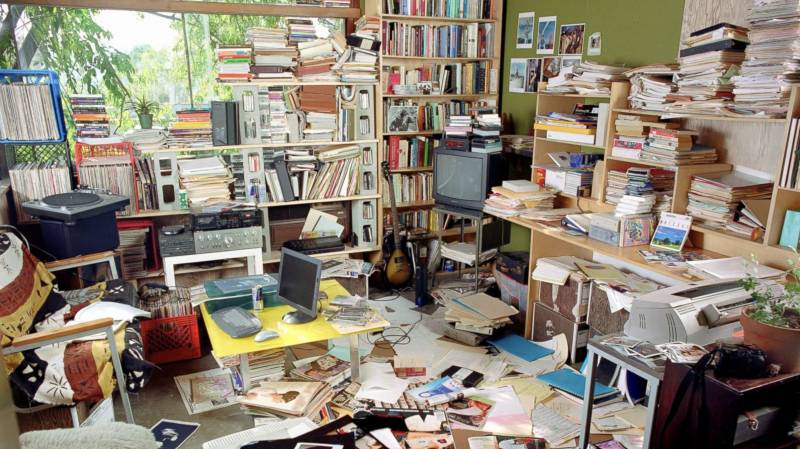
“Out of clutter, find simplicity. From discord, find harmony. In the middle of difficulty lies opportunity”—Albert Einstein
Whether it is in their minds or their homes, human beings have a tendency to store things. Memories, malice, love, clothes, books, jewellery, antiques, discarded items—name them and one can easily find a space where these are locked up for future use so much so that where houses do not have the capacity, storage places are rented for this purpose. The main idea sprouts from the thought, “What if all of a sudden something is required?” and with that an apparently useless item is tucked away.
A quick check in our homes would reveal how we fill up our empty spaces with items we may, may not or may never use. A survey of things we pile up over the years would reveal how much we unthinkingly accumulate. With the rapidly changing clothing styles, one wonders whether it is sensible to retain even seasonal garments for long periods. With companies vying with each other to capture customers, with people getting more and more brand conscious, with books being judged by their covers, with humans being appreciated for their fancy cars and posh lifestyles, there is a growing need to appear more in vogue for casting temporal impressions, whereas in reality they may lack the substance to maintain long term imprint of their personalities. Then what is the logic of stuffing wardrobes and spare suitcases?
Then there is a clutter that we come across in our lives that is to do with unorganized homes and workplaces. Some get a kick out of a crammed up desk or a house full of items strewn all over. Take for instance this quote from Maggie Stiefvater’s novel ‘The Scorpio Races’: “Clutter is my natural habitat”.
For some, clutter is akin to living while perfectionism is like holding one’s breath as justified by Laurence J. Peter: “If a cluttered desk is a sign of a cluttered mind, of what, then, is an empty desk a sign?” Perhaps Niecy Nash comes up with a more sensible approach. She says: “There's nothing wrong with having a collection, but it becomes a problem when it overwhelms your space. When you're not displaying it properly, you're not enjoying it and it turns into clutter.”
All these variants of clutter are there in this world but there cannot be any denying that generally speaking, people would benefit more from a minimalist and organized way of life. Psychologists say that clutter and mental health are connected. Although clutter represents increased creativity, it can also cause stress and anxiety especially in today’s fast moving hyperactive world, where there is hardly any time for indulging in laziness or slipshod behavior. Even our digital cosmos has its own set of clutter with full email inboxes and unnecessary documents on our personal computers and laptops. These can be distracting too as our brains are tuned to focus on limited stimuli and too many diversions can make us go haywire.
Without question, one of the most difficult jobs is to get rid of things as this can be mentally and physically quite tiring. The sense of security surmounts the idea of discarding articles forcing one to retain them with the constantly nagging concern: “What if…..what if?” However, decluttering is necessary for a healthy mind and body. One must gather one’s willpower first, then harness one’s determination to resolve on getting rid of unwanted objects section by section at home and work. The best way is to consider those things that were never used in the last couple of years. These could be clothes, shoes, accessories etc. that may come in helpful to someone else and could be donated to different charities or sold to thrift stores or through a garage sale.
A cluttered living space is always a pain in the neck, but it certainly does not mean that we should start judging ourselves negatively. We should be kind to ourselves. It is natural for anyone to pile up things and realizing its not a necessity but indulgence is when one transforms from being anxious to being at peace. Less stress is fundamental in maintaining a balanced level of cortisol in our blood stream that can lead to a more productive and composed personality. Some sincere advice from Thomas Merton: “The greatest need of our time is to clean out the enormous mass of mental and emotional rubbish that clutters our minds.”

